Let me start with my conclusion: Muda going solo is inevitable and it may benefit both the Madani government and Muda if it is planned and carried out with sobriety and restraints.
This differs from most commentaries you have read, whether pro-Pakatan Harapan or pro-Muda, which are largely trapped in the Two-Coalition or Third Force paradigm. The problems and challenges are to be fleshed out in the following questions.
Why can’t Harapan accommodate Muda?
There are two established rules in seat negotiation among allies in Malaysian parties: first, incumbent parties keep their seats, except for voluntary exchanges; second, seats held by opponents are open for negotiation because they are often just ‘opportunities’, not guaranteed gains.
This makes negotiation very difficult where coalition government partners win most of the seats, such as Selangor, Penang, Negeri Sembilan, and in two to three years’ time, Sabah, Sarawak, Malacca, and Johor.
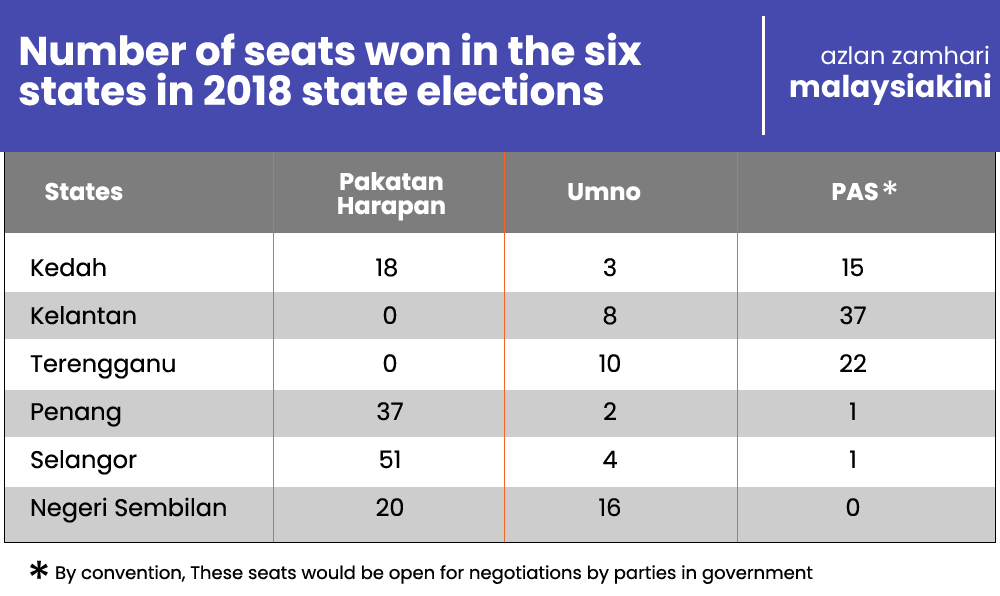
Not only do the limited open seats – one each in Selangor and Penang – have to go to Umno, Harapan has to give more seats it won in 2018 to Umno.
Harapan would have to give away more seats if it wants to accommodate Muda. Beyond the personal styles of Harapan leaders, Muda being ignored is structurally the expected outcome.
And of course, Muda’s multiethnic character makes it a potential substitute for PKR, and its youth base also potentially threatens the raison d’etre of all Harapan youth wings that lack confidence in their own appeal.
Conclusion: It’s rational for Harapan to ignore Muda’s demand.
Is Muda going solo now suicidal?
Many tried to persuade Muda to stay out of the state polls and wait for its chance in GE16. This is assuming that Harapan would allow Muda to contest several seats in GE16, as it did in GE15 in Muar (Syed Saddiq’s base), Kepala Batas, Tanjong Karang, Masjid Tanah, Tanjung Piai, and Kota Marudu.
Never mind that other than Muar, the five seats hardly matched Muda’s demographic profile. Come GE16, would Umno give way to Muda to contest in Kepala Batas, Tanjong Karang, and Masjid Tanah, which it lost? Would MCA and KDM (both parties in the Madani government) give up Tanjung Piai and Kota Marudu they respectively hold now?
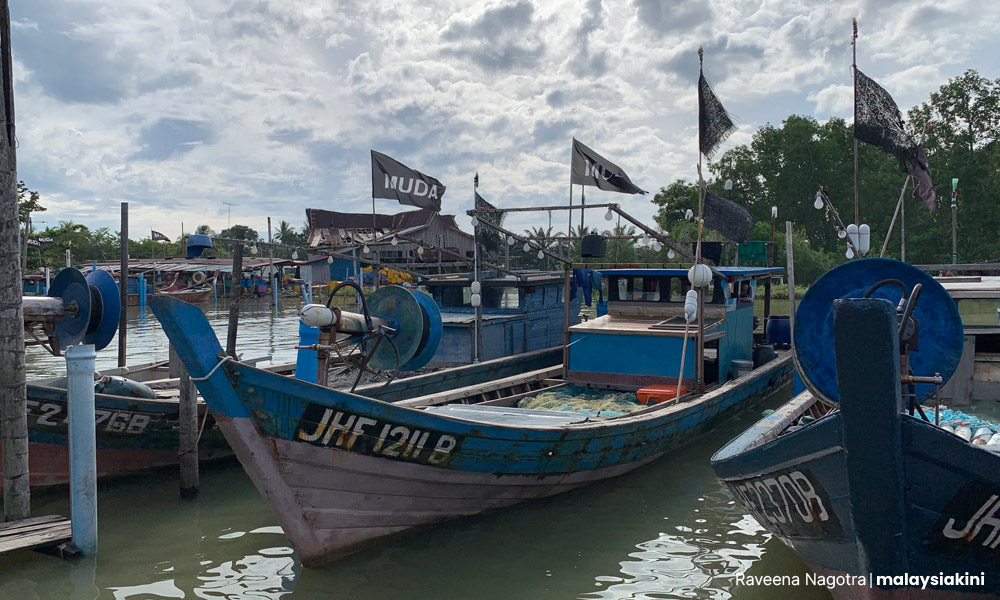
Quite clearly, going by the current game, Muda’s fate in GE16 is between contesting in Muar or going solo against Harapan-BN and Perikatan Nasional (PN). If Muda eventually has to go solo, would it be more suicidal now than later?
If Muda wins seats, expect rapprochement as how Harapan and Warisan made up. If Muda does badly, of course, it will be finished, but that’s likely the same fate If they sit out every state election before GE16.
Conclusion: It’s rational for Muda to go solo now.
Can’t inter-ally contestation be avoided to deny PN easy victory?
How can contestation between coalition allies, like Harapan-BN and Muda, be avoided to deny victory for their rivals, in this case, PN? Three solutions are available.
First, the electoral system needs to be tweaked to allow voters to vote directly for parties (under Party List Proportional Representation) in addition to constituency representatives as we currently do (under the First-Past-The-Post system).
Then, allies can compete for party votes while cooperating in constituency contests. The more seats the parties win, the stronger the coalition government they form. This is the system now used in Thailand and one reason why the youth-based Move Forward Party and Pheu Thai Party did well.
Second, inter-ally primaries – which may take the form of opinion polls - to decide on the best candidates for constituencies with multiple aspirants. This is technically straightforward but politically unpopular because party leaders would lose their power to pick and control candidates.
So, we are left with the third choice, friendly matches between allies. Coalition partners compete by aiming to steal votes from their main rivals, not just from each other, with restraints in criticism of each other.
If this new norm emerges, we will see GPS contesting against Harapan in Sarawak, and GRS, BN, Harapan, and Warisan contesting against each other in Sabah, as well as Harapan and BN contesting in selected constituencies in Johor and Malacca, without toxic attacks, as they would still stay together in the federal government.
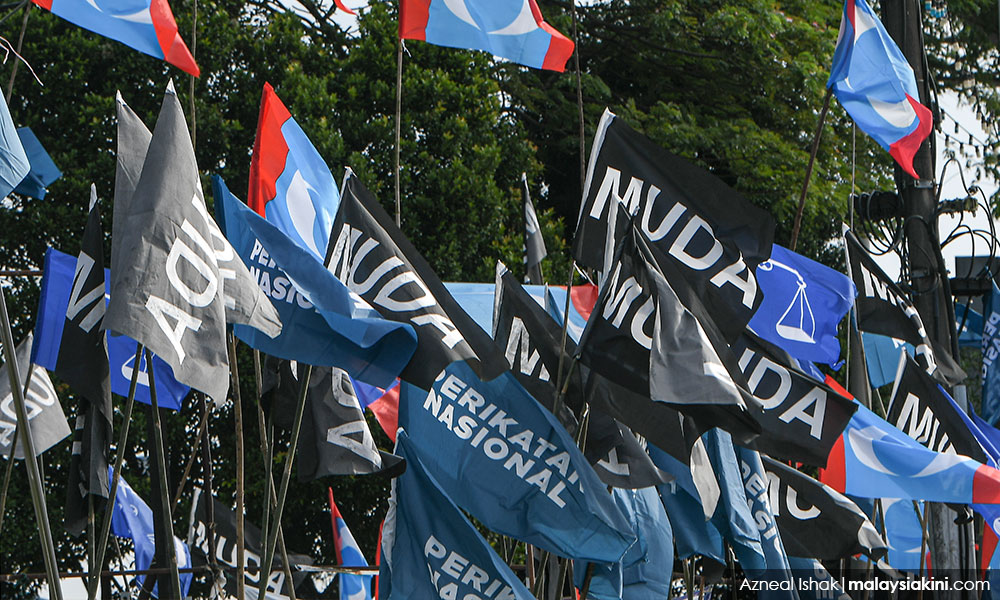
Do we have any successful precedence so far? No. Can Muda show the way?
Whose votes will Muda draw from?
All the talks about Muda splitting Harapan votes are premised on three assumptions: first, Muda and Harapan share the same or highly overlapped electoral base; second, Muda will campaign as the alternative to Harapan; third, the base would fail to act in unison to all stay with Harapan or all move to Muda.
If Muda indeed aims at Harapan as its main rival, it will fail miserably, as many predict.
Most Harapan voters are strategic voters, defined by their determination to sustain the Madani government out of deep fear and rejection of PAS. For this reason, many would even support Umno which they despised just eight months ago.
Such voters are likely to demonstrate two behaviours, (a) initial intolerance to harsh criticisms of the Madani government even if they themselves are not satisfied; (b) eventual pragmatism to back the strongest non-PN contestant if the latter’s lead is clear.
In other words, Muda can only appeal to the Harapan hardcore by first proving its ability to reach out to the non-Harapan ground: BN, PN, and abstained voters - what I call Parti Aku Malas Undi (Pamu), also known as the I-am-too-lazy-to-vote party.
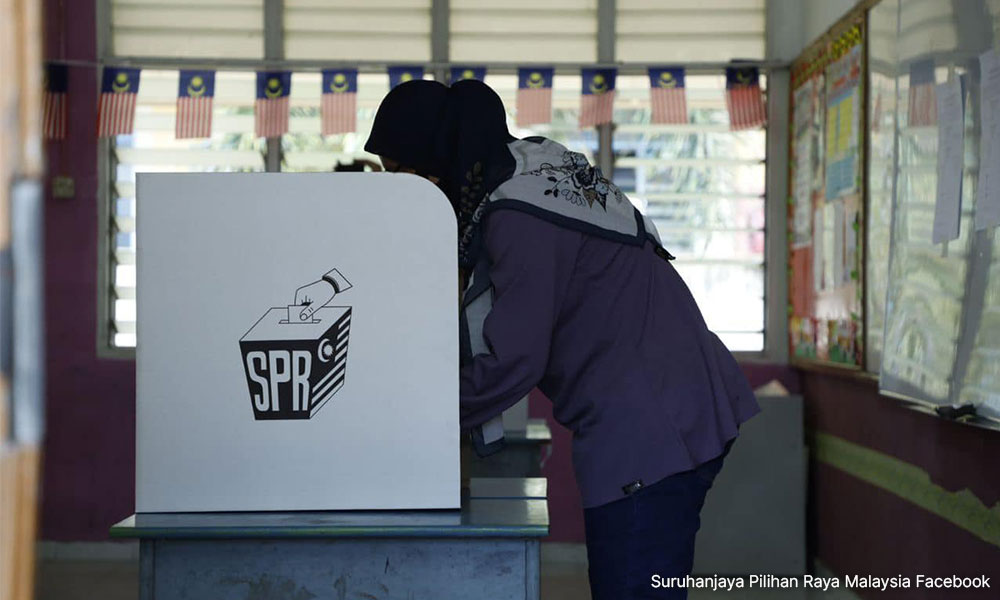
Harapan’s inability to excite voters for the state polls is telling as compared to PN’s recent rallies that drew crowds.
For Muda to stand a chance to win seats or at least emerge as first runner-up, it must be able to pull votes from PN, BN, and most importantly Pamu.
The GE15 vote data is telling. In the PAS states, PN won 42-50 percent support from all eligible voters, followed by BN’s 18-25 percent and Harapan at 4-15 percent.
In the Harapan states, Harapan led at 35-46 percent, followed by PN’s 17-22 percent, and BN’s 12-25 percent. If the abstainers can be considered a party, Pamu was the second largest party in Kelantan (29 percent), Kedah (23 percent), and Penang (22 percent), and the third in Negeri Sembilan (22 percent), Selangor (20 percent), and Terengganu (19 percent).
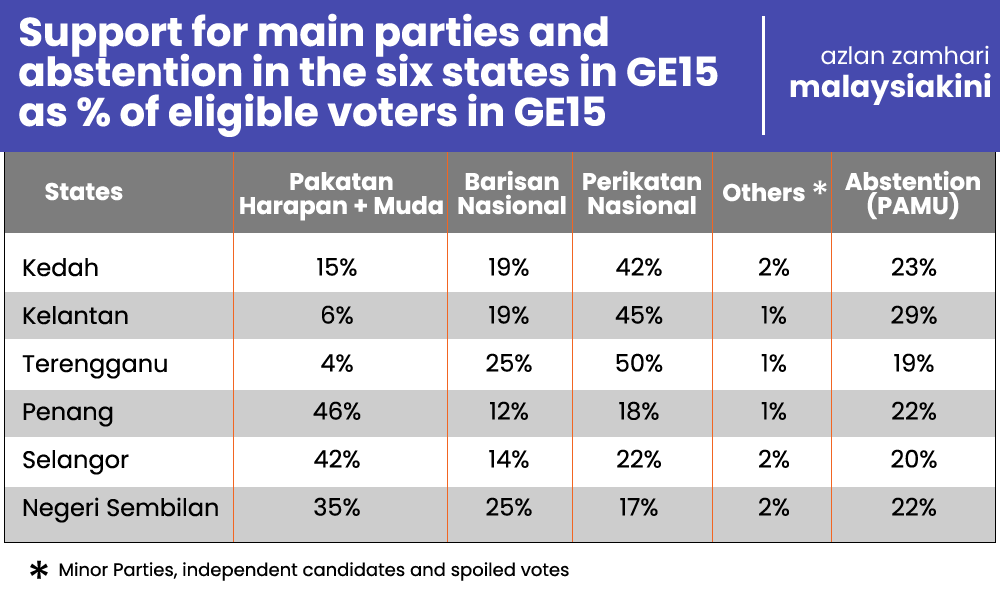
For the state elections, expect a sizeable part of BN votes to go PN and Pamu instead of sticking to Harapan-BN, in protest of Umno’s purging of dissidents. Some Harapan supporters may go Pamu if they can’t bring themselves to vote for Umno. Perhaps some PN supporters may swing to Harapan-BN or Pamu but few expect a big swing.
All in all, expect Pamu to win more votes from Harapan, BN, and PN, partly because state elections are considered less important, partly because of political fatigue and disillusionment.
Given separately-held elections have lower turnout by 10-20 percent in the same state, and GE15’s turnout was 74 percent, Pamu may reach somewhere around 29-49 percent.
Now, put Muda in the equation. Can it steal some youth votes from PN, whose supporters have been erroneously categorised by many as 100 percent Islamists? Can Muda appeal to disgruntled Umno grassroots as an alternative to PN?
Most of all, can Muda excite cynical or apolitical voters who think politicians are all the same and voting makes no difference? If Muda can steal half of Pamu votes, it can definitely keep its deposit.
These are no easy tasks for Muda. Praising Singapore for organising six Coldplay concerts on economic logic may appeal to youth in Bangsar but unlikely to their peers in Bangi, let alone Bachok, Besut, Balik Pulau, or Bahau.

Today’s youth have dimmer prospects than their parents’ generation to purchase their own homes and climb up social ladders. What future awaits food deliverers and e-hailing drivers? What is being done to protect job loss from artificial intelligence (or to create new jobs in replacement)?
The competition for youth votes is not between liberal parties like Harapan and Muda, but a competition in explaining and redirecting the disenchanted youth’s frustration and anger – to seek policy solutions that improve their life chances, or to seek populist gratification in putting down Malaysians of other cultural backgrounds? Can Muda do better than Harapan and Anwar’s Madani narrative?
Can Muda’s running benefit the Madani government?
As far as the Madani government’s survival is concerned, stopping PN is the top priority. Any votes that Muda can attract from going PN’s way helps Harapan-BN. If Muda’s participation can excite voters and raise turnout, Harapan-BN may gain too, especially if there is spillover in constituencies not contested by Muda.
The Madani government as a whole – not any Harapan-BN party or their youth wings – will only lose in two circumstances: first, the Harapan base is split right between Harapan-Muda to give PN an easy victory; second and worse, Muda and Harapan attack each other such that it benefits PN and further dampens turnout.
To avoid these two worst scenarios, Muda may need to adopt a few strategies.
First, position itself as a Harapan-friendly rival or loyal opposition, and make clear it would back Harapan-BN on confidence and supply matters. While many activists love the ‘third force’ label, this reads ‘spoiler’ for Harapan’s base and invites their hostility.
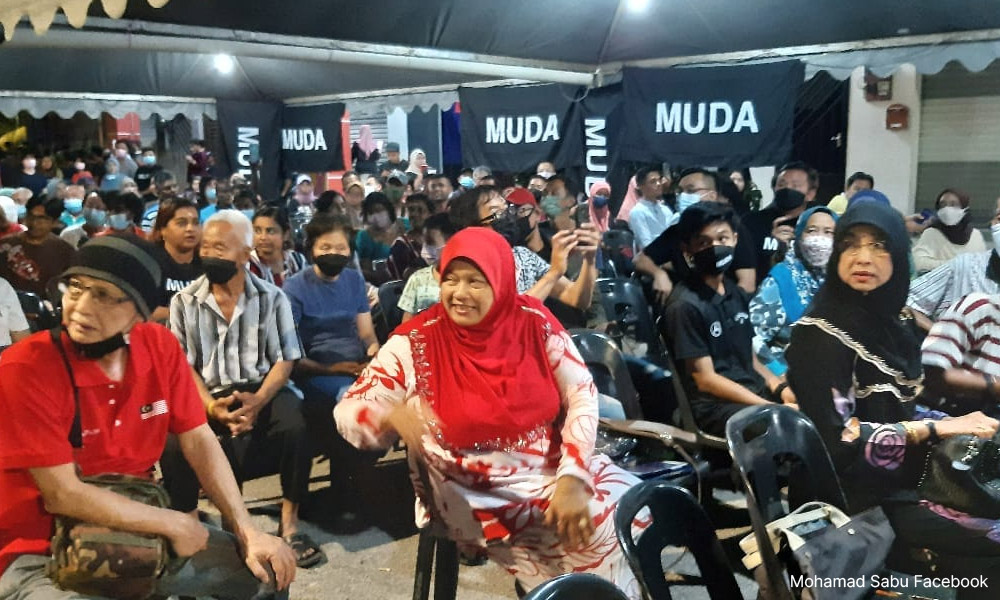
Likewise, don’t attack party politics as some independent candidates did. Just be a professional, 21st-century party.
The second is for Muda to limit the seats it (and PSM if they form a pact) contests to not more than 10 percent in each state, i.e. maximum five in Selangor, four in Penang, and three in the rest. These seats should include a mix of those held by PN, those conceded by Harapan to BN, and those defended by Harapan.
It must send a clear message it doesn’t intend to rock Harapan’s boats. (Singapore opposition used to adopt this ‘by-election strategy’ to assure conservative voters of PAP’s victory so that they dared to vote opposition.)
Third, avoid spats with Harapan leaders. If every news about Muda is about its quarrels with Harapan or the federal government, it will likely lose deposits in every seat. Don’t fight over the liberal base – that’s the over-saturated red ocean.
If Harapan leaders, young or old, pick fights, just ignore them. Show your maturity and professionalism. Muda can be vocal on issues like the PJD highway or the LCS scandal which Harapan-BN have let down some voters with, but it should focus on the issues and solutions, instead of making partisan attacks that would burn all bridges.
Fourth, Muda should go all out on bread-and-butter issues affecting the youth to steal votes from PN and Pamu. Talk about generational grievances to make ethnoreligious differences less relevant. Talk about policy and institutional reforms – from global warming to local elections – that can empower the youth and protect their future. That’s the blue ocean.
When Muda can woo enough youth from PN or Pamu, the Harapan base would just jump on the bandwagon in their eagerness to stop PN. - Mkini
WONG CHIN HUAT is an Essex-trained political scientist at Sunway University. He is a professor at the university’s Sustainable Development Solutions Network (SDSN) Asia. Mindful of humans’ self-interest motivation while pursuing a better world, he is a principled opportunist.
The views expressed here are those of the author/contributor and do not necessarily represent the views of MMKtT.




No comments:
Post a Comment
Note: Only a member of this blog may post a comment.